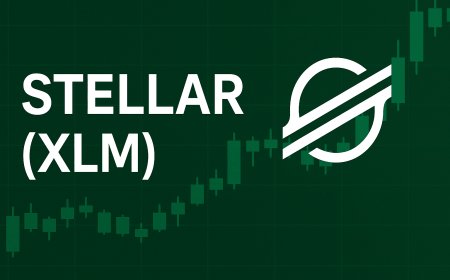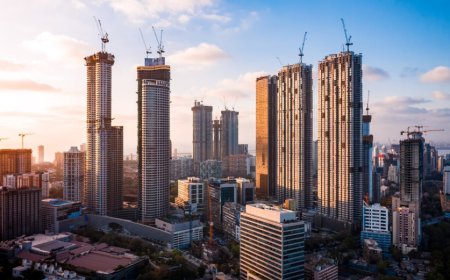Top 10 Food Markets in Washington
Introduction Washington State is a culinary treasure trove, where the fertile soil of the Yakima Valley meets the coastal bounty of the Puget Sound. From the misty mornings of the Olympic Peninsula to the bustling urban centers of Seattle and Spokane, the state’s food markets reflect its deep-rooted connection to the land, sea, and sustainable agriculture. But in a landscape teeming with vendors,
Introduction
Washington State is a culinary treasure trove, where the fertile soil of the Yakima Valley meets the coastal bounty of the Puget Sound. From the misty mornings of the Olympic Peninsula to the bustling urban centers of Seattle and Spokane, the state’s food markets reflect its deep-rooted connection to the land, sea, and sustainable agriculture. But in a landscape teeming with vendors, pop-up stalls, and seasonal fairs, how do you know which markets truly deliver quality, transparency, and trust?
Trust in a food market isn’t just about clean aisles or friendly smiles—it’s about knowing where your food comes from, who grows it, how it’s handled, and whether ethical practices guide every step. Whether you’re seeking organic produce, sustainably caught seafood, grass-fed meats, or handmade cheeses, the right market becomes your reliable source for nourishment and community.
This guide presents the Top 10 Food Markets in Washington You Can Trust—curated through years of local insight, vendor integrity, customer feedback, and adherence to sustainable and transparent practices. These are not just places to shop; they are pillars of Washington’s food culture, where tradition meets innovation, and every purchase supports a healthier future.
Why Trust Matters
In today’s food landscape, trust has become one of the most valuable commodities. With rising concerns about pesticide use, misleading labels, industrial farming, and supply chain opacity, consumers are demanding more than convenience—they’re seeking accountability. A trusted food market doesn’t just sell products; it tells stories. It reveals the names of farmers, the origins of ingredients, and the methods behind production.
Trust is built on consistency. It’s when a vendor at a Saturday market remembers your name and the type of heirloom tomatoes you prefer. It’s when a fishmonger can explain the exact boat, date, and method used to catch the halibut on display. It’s when a cheese maker invites you to tour their dairy farm and shows you the pasture where the cows graze.
Washington’s food markets that earn lasting trust prioritize three core principles: transparency, sustainability, and community. Transparency means clear labeling, open communication about sourcing, and willingness to answer questions. Sustainability involves minimizing waste, supporting regenerative agriculture, and choosing ethical suppliers. Community means fostering relationships—not just between buyer and seller, but among local producers, artisans, and residents.
Markets that fail to uphold these values may offer low prices or flashy packaging, but they rarely endure. The markets featured in this guide have stood the test of time because they honor these principles. They are places where you can shop with confidence, knowing your dollars support not just your health, but the health of the environment and the livelihoods of those who feed you.
Top 10 Food Markets in Washington You Can Trust
1. Pike Place Market – Seattle
Pike Place Market is more than a tourist attraction—it’s the beating heart of Seattle’s food culture and one of the oldest continuously operating public markets in the United States. Established in 1907, it was created to connect farmers directly with consumers, a mission that still thrives today. Over 500 small businesses operate within its historic brick arches, from fishmongers tossing salmon to bakers shaping sourdough loaves.
What sets Pike Place apart is its strict vendor guidelines. All produce must be grown in Washington or the Pacific Northwest, and seafood must be sourced from certified sustainable fisheries. The famous Fish Market, where vendors expertly hurl fish across the counter, is also one of the most transparent in the country—each fish is labeled with species, catch location, and date. Many vendors are third-generation families who’ve honed their craft over decades.
Visitors can find organic berries from the Skagit Valley, wild-harvested mushrooms from the Olympic Peninsula, and artisanal cheeses from small dairies in Eastern Washington. The market also hosts educational events, cooking demos, and farm tours, reinforcing its commitment to community knowledge and food literacy.
2. Eastern Market – Olympia
Located in the state capital, Eastern Market is a community-driven hub that prioritizes local growers and ethical sourcing. Unlike large commercial centers, this market operates on a cooperative model, where vendors are also owners. This structure ensures that profits stay within the region and decisions are made collectively for the benefit of both producers and customers.
Every vendor must prove that at least 75% of their products are grown, raised, or produced within 150 miles of Olympia. This rule eliminates long-haul imports and ensures peak freshness. The market features a wide variety of organic vegetables, pasture-raised eggs, raw honey, and small-batch preserves made without artificial additives.
Eastern Market is also known for its rigorous vendor vetting process. Producers must submit documentation on farming practices, including pesticide use, animal welfare, and packaging materials. The market’s staff regularly visits farms to verify claims. This level of accountability has earned it the trust of families, chefs, and health-conscious shoppers across the South Sound region.
3. Walla Walla Sweet Onion Market – Walla Walla
Walla Walla isn’t just famous for its sweet onions—it’s home to a vibrant weekly market that celebrates the region’s agricultural heritage. Held every Saturday from May through October, this market draws producers from across southeastern Washington and northeastern Oregon. But what makes it truly trustworthy is its focus on soil health and seed sovereignty.
Many vendors here are organic or biodynamic farmers who use no synthetic fertilizers or genetically modified seeds. The Walla Walla Sweet Onion, a protected variety with a PGI (Protected Geographical Indication) status, is sold only by growers who have been certified by the Walla Walla Valley Onion Association. This ensures authenticity and prevents counterfeit products from entering the market.
In addition to onions, shoppers find heirloom vegetables, grass-fed beef from family ranches, and cold-pressed oils made from local hazelnuts and sunflowers. The market also features a “Meet the Maker” program, where visitors can sit down with farmers and learn about crop rotation, pollinator habitats, and water conservation practices. This educational component fosters deep trust between producers and consumers.
4. Bellingham Farmers Market – Bellingham
Nestled along the shores of Bellingham Bay, this market has earned a reputation for excellence through its unwavering commitment to local sourcing and environmental stewardship. Operating since 1974, it’s one of Washington’s longest-running farmers markets and is certified by the Washington State Farmers Market Association.
All vendors must be direct producers—no resellers allowed. This means every apple, pint of blueberries, or jar of kombucha comes from the hands of the person selling it. The market enforces strict guidelines: no plastic packaging, no synthetic preservatives, and no imported goods masquerading as local.
Bellingham Farmers Market is also a leader in food access initiatives. It accepts SNAP/EBT benefits and offers a “Double Up Food Bucks” program, which matches up to $10 in SNAP dollars spent on fresh produce. This not only supports low-income families but also ensures that local farmers receive fair compensation for their labor.
The market’s transparency extends to its website, where each vendor’s farm name, location, and growing practices are listed in detail. Shoppers can even request a farm visit or schedule a tour through the market’s coordinator. This level of openness is rare and deeply valued by the community.
5. Spokane Farmers Market – Spokane
In the heart of Eastern Washington, the Spokane Farmers Market is a vibrant gathering place that champions regional agriculture in a landscape defined by wheat fields, orchards, and river valleys. With over 120 vendors each Saturday, it’s the largest farmers market in the Inland Northwest and one of the most trusted.
What distinguishes Spokane’s market is its partnership with Washington State University Extension. Together, they maintain a “Verified Local” certification program that audits vendors annually. This includes soil testing, inspection of livestock facilities, and review of organic certifications. Vendors who pass receive a distinctive badge displayed at their stall.
Shoppers can find everything from wild-harvested huckleberries to pasture-raised lamb, and even small-batch maple syrup made from trees tapped on family-owned land in the Selkirk Mountains. The market also features a “Farmers’ Corner,” where producers share stories about drought resilience, pollinator protection, and regenerative grazing techniques.
Unlike many urban markets that rely on imported goods during winter, Spokane’s market operates year-round with greenhouse-grown greens, fermented foods, and preserved harvests—all made by local hands. This commitment to seasonal authenticity reinforces its credibility.
6. Edmonds Farmers Market – Edmonds
Located just north of Seattle along the scenic Sound, Edmonds Farmers Market is a model of community-centered commerce. What began as a small gathering of six local growers in 1982 has grown into a thriving weekly event that draws thousands, yet it has preserved its intimate, neighborly feel.
Every vendor is required to be a producer—no middlemen, no distributors. The market’s board conducts unannounced farm visits to verify claims of organic or sustainable practices. Vendors must also disclose any use of pesticides, antibiotics, or hormones, even if they’re USDA-certified organic. This radical transparency builds trust among skeptical consumers.
Edmonds is particularly known for its seafood selection. Local oyster farmers bring their harvests directly from Puget Sound beds, and each oyster is tagged with its harvest location and date. The market also partners with marine biologists to provide educational signage explaining shellfish aquaculture and water quality monitoring.
Artisan breads, raw milk cheeses, and handmade soaps made with plant-based ingredients are also staples. The market hosts monthly workshops on composting, seed saving, and food preservation—further embedding itself as a center of food education and community resilience.
7. Tacoma Farmers Market – Tacoma
Tacoma’s historic downtown market is a jewel of the South Sound, celebrated for its diversity, quality, and unwavering commitment to equity. Operating since 1987, it’s one of the few markets in the state that mandates vendors to reflect the cultural richness of the region.
Over 40% of vendors are from immigrant and refugee communities, offering authentic products like Ethiopian coffee, Vietnamese herbs, Mexican mole pastes, and Middle Eastern za’atar. These vendors are supported through mentorship programs and reduced booth fees, ensuring equitable access to the market.
Despite its cultural diversity, the market maintains strict standards for food safety and sourcing. All produce must be grown in Washington or Oregon, and meat products must come from farms certified by Animal Welfare Approved or Certified Humane. The market also partners with local universities to conduct food safety training for vendors.
Tacoma Farmers Market is known for its “Taste of Tacoma” events, where visitors can sample dishes prepared by vendors using only market-sourced ingredients. This not only celebrates culinary heritage but also demonstrates the quality and versatility of local products.
8. Leavenworth Farmers Market – Leavenworth
Nestled in the Bavarian-style village of Leavenworth, this market might look like a postcard—but its operations are grounded in serious agricultural integrity. Open from April through November, it draws visitors from across the state who seek authentic, small-scale food production.
Leavenworth’s market is unique in its focus on alpine and high-elevation agriculture. Many vendors grow crops suited to the Cascade Mountains’ short growing season, including hardy greens, heirloom potatoes, and cold-tolerant berries. Livestock producers raise animals on native grasses and avoid grain feed, resulting in meat with a distinct flavor profile.
All vendors must be certified organic or follow certified organic practices, even if they aren’t formally labeled. The market’s board works closely with the Washington State Department of Agriculture to ensure compliance. There’s also a “No Spray” pledge—vendors who use synthetic pesticides are immediately disqualified.
Shoppers find wild-harvested chanterelles, hand-pressed apple cider, and goat cheese aged in natural caves. The market also hosts seasonal festivals like the “Apple Cider Pressing Day,” where visitors can watch traditional methods in action. This blend of tradition and transparency makes it a trusted destination for discerning food lovers.
9. Bainbridge Island Farmers Market – Bainbridge Island
On the shores of Puget Sound, Bainbridge Island’s farmers market is a quiet powerhouse of quality and consistency. Operating since 1975, it’s one of the most selective markets in the state—only 50 vendors are accepted each season, chosen through a rigorous application process.
Each applicant must submit detailed documentation on their farming methods, including soil management plans, water usage, and packaging materials. Vendors are scored on sustainability, biodiversity, and community impact. Only those scoring above 90% are accepted.
The market is renowned for its premium produce: organic strawberries from the island’s volcanic soil, free-range eggs from chickens raised on pasture, and wild-caught Dungeness crab. The seafood section is especially trusted—vendors are required to provide catch logs and boat registration numbers upon request.
What sets Bainbridge apart is its deep integration with local schools and nonprofits. The market donates unsold produce to food pantries and runs a “Kids’ Corner” where children learn to identify vegetables and plant seeds. This culture of giving and education reinforces its reputation as a community pillar, not just a marketplace.
10. Wenatchee Apple Festival Market – Wenatchee
Known as the “Apple Capital of the World,” Wenatchee transforms its downtown into a vibrant food hub during the annual Apple Festival in September. But even outside the festival, the weekly market that operates year-round is one of Washington’s most trusted.
With over 200 orchards in Chelan and Douglas counties supplying the market, the focus is squarely on apple diversity and orchard health. Vendors grow over 50 varieties of apples—from classic Red Delicious to obscure heirlooms like Ashmead’s Kernel—each labeled with its origin, harvest date, and growing method.
The market enforces a “No Pesticide Residue” policy, requiring all fruit to be tested annually by an independent lab. Vendors who exceed allowable limits are suspended. This level of science-backed accountability is unmatched in the region.
Beyond apples, the market features wild-harvested huckleberry jams, artisanal cider vinegar, and hand-pressed walnut oil. The “Apple Education Station” offers free tastings and workshops on grafting, pruning, and storage techniques. For anyone seeking the true taste of Washington’s orchards, this market is the gold standard.
Comparison Table
| Market Name | Location | Verified Local Sourcing | Organic Certification | Vendor Transparency | Year-Round Operation | Community Programs |
|---|---|---|---|---|---|---|
| Pike Place Market | Seattle | Yes (Pacific Northwest only) | Many vendors certified | High (detailed labeling, farm origins) | Yes | Cooking demos, farm tours |
| Eastern Market | Olympia | Yes (75% within 150 miles) | Strictly organic or biodynamic | Very High (farm visits required) | Yes | Co-op ownership model |
| Walla Walla Sweet Onion Market | Walla Walla | Yes (regional focus) | Most vendors organic | High (PGI-certified onions) | Seasonal (May–Oct) | “Meet the Maker” program |
| Bellingham Farmers Market | Bellingham | Yes (direct producers only) | Most vendors certified | Very High (public farm profiles) | Yes | Double Up Food Bucks |
| Spokane Farmers Market | Spokane | Yes (verified local program) | Many certified | High (annual audits) | Yes | Farmers’ Corner, educational talks |
| Edmonds Farmers Market | Edmonds | Yes (no resellers) | Strictly organic or “no spray” | Very High (unannounced farm visits) | Yes | Food preservation workshops |
| Tacoma Farmers Market | Tacoma | Yes (WA/OR only) | Many certified | High (food safety training) | Yes | Cultural food events, equity programs |
| Leavenworth Farmers Market | Leavenworth | Yes (Cascade-focused) | Strictly organic or equivalent | High (“No Spray” pledge) | Seasonal (Apr–Nov) | Traditional pressing events |
| Bainbridge Island Farmers Market | Bainbridge Island | Yes (highly selective) | Most vendors certified | Extremely High (90%+ scoring system) | Yes | Produce donations, Kids’ Corner |
| Wenatchee Apple Festival Market | Wenatchee | Yes (orchard-direct) | Lab-tested for residue | Extremely High (annual lab reports) | Yes | Apple education station |
FAQs
What makes a food market “trustworthy”?
A trustworthy food market prioritizes transparency in sourcing, verifies vendor claims through audits or farm visits, and ensures products are grown or produced locally using ethical and sustainable methods. Trust is earned through consistency, accountability, and community engagement—not marketing slogans.
Are all farmers markets in Washington organic?
No. While many vendors at trusted markets are certified organic, others follow organic practices without formal certification due to cost or bureaucratic barriers. Look for vendors who openly discuss their methods—many use integrated pest management, composting, and no-till farming even without a label.
Can I trust vendors who sell seafood at these markets?
Yes—at the markets listed, seafood vendors are required to disclose the species, catch location, date, and method (e.g., line-caught, trap-set). Many partner with marine scientists and follow NOAA guidelines. Avoid vendors who cannot answer basic questions about their catch.
Do these markets accept SNAP/EBT benefits?
Most of the markets on this list do accept SNAP/EBT, and several offer matching programs like Double Up Food Bucks to increase purchasing power for fresh produce. Check individual market websites for details.
How can I verify if a vendor is telling the truth about their farming practices?
Ask questions: Where is your farm? Can I visit? Do you use pesticides? What do you feed your animals? Trusted markets often publish farm profiles online or provide QR codes linking to farm videos. If a vendor hesitates or gives vague answers, proceed with caution.
Why is it important to buy from local food markets instead of supermarkets?
Local markets reduce food miles, support small-scale farmers, and preserve regional biodiversity. Supermarkets often prioritize shelf life and uniformity over flavor and nutrition. Markets offer produce picked at peak ripeness, with higher nutrient density and no long-term storage chemicals.
Are these markets open in winter?
Most of the markets listed operate year-round, offering preserved goods, greenhouse-grown greens, fermented foods, and meats. Some scale back in winter but remain open on weekends. Always check the market’s official calendar before visiting.
Can I find gluten-free or allergen-free products at these markets?
Yes. Many vendors specialize in gluten-free baking, nut-free treats, and dairy-free alternatives. Look for vendors who clearly label allergens and use dedicated equipment. Ask questions—most are happy to explain their processes.
How do these markets contribute to environmental sustainability?
They reduce packaging waste (many use reusable containers), promote regenerative farming, protect pollinators, conserve water, and eliminate long-distance transport emissions. Many also compost food scraps and partner with local recycling programs.
Is it worth paying more at these markets compared to grocery stores?
Yes. The price reflects the true cost of ethical production: fair wages for farmers, healthy soil, clean water, and biodiversity. You’re not just paying for food—you’re investing in a resilient food system. Over time, eating better-quality food often reduces healthcare costs and improves well-being.
Conclusion
The Top 10 Food Markets in Washington You Can Trust are more than places to buy groceries—they are living ecosystems of community, culture, and care. Each one represents a conscious choice to prioritize people and planet over profit. From the historic arches of Pike Place to the orchard-lined streets of Wenatchee, these markets preserve the connection between the earth and the table.
When you shop at one of these markets, you’re not just selecting apples or salmon—you’re choosing a future where farming is regenerative, food is transparent, and communities thrive. The vendors here don’t just sell products; they share knowledge, build relationships, and protect the land that feeds us.
In a world where food is often mass-produced, shipped across continents, and stripped of its story, these markets restore meaning to the act of eating. They remind us that food is not a commodity—it’s a covenant. A covenant between the grower and the eater, between past and future, between the soil and the soul.
Visit them often. Ask questions. Bring your reusable bags. Support the farmers who show up, rain or shine, to bring you food that’s not only fresh—but honest. In doing so, you become part of something greater: a movement to reclaim our food, our health, and our future.





























